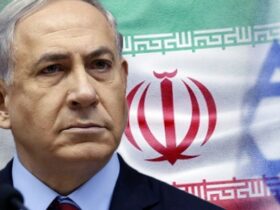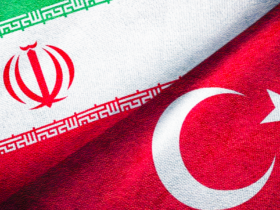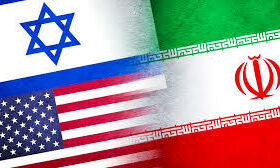“In a secular regime, people have the freedom to be religious or not. I also recommend that Egypt have a secular constitution, because secularism is not against religion. Do not be afraid of secularism. I hope that the new regime in Egypt will also be secular. And I hope that the Egyptian people’s perception of secularism will be changed after these words.”
The anecdote which I shared a small part of, is a call for secularism made by President Recep Tayyip Erdogan during his visit to Cairo in September 2011, just after the Arab Spring.
Back then, such statements from Erdogan caused great controversies among the Arab countries. While progressive groups in the region cheered to Erdogan’s statement, the first reactions came from the Muslim Brotherhood.
While Mahmoud Ghozlan, the spokesman for the organization, said that “The experiences of other countries cannot be replicated to Egypt. The circumstances that led to the establishment of a secular state in Turkey, were different from the circumstances in Egypt”, he also accused Erdogan of trying to get involved in Egyptian internal affairs.
Then water went under the bridge. And after the Arab Spring, the region had undergone major changes. But the tide did not turn in an expected direction.
Today, sectarian and ethnic conflicts as well as imperialist interventions continue to deepen in the region.
Efforts are still being made in search of a solution.
In this context, the Lebanese President Michel Aoun’s emphasis on a “secular state”, has brought the Arab countries’ search for a new system back on the agenda.
SECULARISM AS A SOLUTION AGAINST DEGENERATION
Last week during an interview, Aoun said that “Lebanon and the Lebanese deserve, after a long suffering, a state where merit is the criterion, and law is the guarantor of the rights of all equally, and where the fundamental belonging is to the nation and not to the leaders of the confessions. There is a need to develop, modify, and change the system. I call for the proclamation of Lebanon as a secular state.”
Just as Karl Marx saw Russia as the least likely country to go through a Socialist revolution in Europe, Lebanon could also be seen as the least likely country for the establishment of a secular nation-state in the Middle East.
The country that is so deeply divided into different sectarian and ethnic identities, even in its smallest institutions, as a result of its constitution and state structure, a relic from its past under the French mandate.
It is a historic thing for the clan-based country Lebanon, which has still not advanced beyond feudalism, and where the President is dictated to be elected from among Maronite Christians, the Prime Minister from Sunni Muslims and the speaker of the Parliament from Shiite Muslims.
Aoun’s words are even more important in an environment where imperialism is trying to divide communities into religious and ethnic tribes, just as it had in Iraq, Syria and Libya.
Before we cheer, it is worth mentioning the possibility that these words might be driven by the desire to eradicate Hezbollah, which is the only force in the region fighting against Israel, from the political stage, under the name of secularism.
Hezbollah’s response to this call is extremely important.
This call should be carefully evaluated in the international perspective, especially given the fact that it came immediately after the French “New Roadmap” which French President Macron dictated to Lebanon as if he were still the country’s colonial governor.
THE REACTION AGAINST IKHWAN IN TUNISIA
Another Arab country of the region, where the secularism-based debates have long taken place is Tunisia…
The coalition government between the Nationalists and Ennahda, which is the Tunisian branch of the Muslim Brotherhood, has dissolved.
While the reason for the dissolution of this coalition, which has also been shown as an example for Turkey, is said to be various corruption scandals, it is well-known that the actual reasons are the disagreements about national security strategies, particularly in Libya.
Ennahda leader Ghannouchi said that “We want to stay away from religion based political struggles. We call for neutrality. A modern country works on reliable programs, and not on ideologies, slogans and political clashes” in the group’s party congress in 2016, declaring that the movement would follow a rather moderate axis, they nonetheless have been unable to find common cause with the nationalists.
Ennahda’s pro-Ikhwan foreign policy and efforts to transform the secular basis of Tunisia has been attracting reactions of the masses.
Even though the Ennahda leader Ghannouchi, who still occupies the position of Speaker of the Parliament, has won the vote of confidence with only a slight majority, the political chaos in the country continues to deepen.
In the polarization over Tunisian politics, the AKP government has chosen to side with the Ennahda.
The countries in the region, particularly Algeria and Egypt, support the nationalist front, which consists of the followers of the founding leader Habib Bourguiba, worker’s unions, leftist/socialist groups, in addition to some individuals from the previous regime, for their opposition against Ikhwan.
It is also known that the United Arab Emirates is trying to get involved in the country through connections with the previous regime.
Multiple intelligence sources concluded that the United States and France act in favor and maintain their relations with the both sides, just as they do in Libya, especially since the United States is looking for a way to establish a military base in the country.
WHICH SECULARISM?
When we look at the secularist groups in the Middle East, we find two different movements;
1.Those who look in favor of a cooperation with the West in the name of secularism, and can even cooperate with some structures among the United Arab Emirates, Saudi Arabia and the United States with Ikhwan as a common enemy,
- Those who rely on the anti-imperialist tradition and still hold onto the pro-independence axis of the region. These groups oppose political Islamism, especially Ikhwan, due to the group’s social backwardness and role as an instrument of imperialism.
The existence of these two movements should be used as a political filter when evaluating the anti-Islamist groups in the region.
Lebanese President Michel Aoun has led the Maronite movements, which were on the same axis as France and Israel previously during the 1975-1990 civil war. But now, under the banner of “Lebanese” identity, he has shown the courage to cooperate with Hezbollah which resisted the Israeli occupation since early 2000s.
If Aoun made the call for a “secular state” in order to end the previous Lebanese model, which was based on ethnic and sectarian divisions imposed by imperialism as a model to the whole world, he must be supported by any means necessary.
“The secular state” is a model which can unite the clans in Lebanon and melt them down under the national pot.
This model is against the imperialist’s plans by its very nature.
But if this model is set up as a trap to eradicate Hezbollah from the political arena, it must be cautiously approached.
As I mentioned at the beginning of the article, the grounds on which Hezbollah’s attitude toward a “secular state” are set will be decisive.
On the other hand, the establishment of political power in Tunisia that is against imperialism and particularly the French imperialism, based on the ideals of Habib Bourguiba, who was in turn influenced by Mustafa Kemal Ataturk, would be in the region’s favor.
Otherwise, Tunisia could wake up in the morning to a government that cooperates with the international corporations that drain out the entire country’s resources to the West under the name of secularism, or to an Ikhwanist government that takes part in the imperialist plans of dragging the region into a religious extremism.
SECULARISM AGAINST IMPERIALISM
As the multipolar world is being established, local political movements are shifting towards greener pastures. Some groups and individuals who could never be imagined to come together, have already set up alliances, while brothers become enemies.
The way to find the truth in all this uncertainty is to learn from the scientific facts and historical examples of triumphs against imperialism.
The field of movement of an anti-imperialist force is limited to the class and the ideological foundations on which it is based. It is not possible to overcome these boundaries by creating ideological inconsistencies and historical disinformation.
The solution to the imperialist ethnic and sectarian impositions in the region is a modern society united with secularism and citizenship.
It is fantastic to see a trend in this direction in the Arab nations, which had roughly the same destiny as Turkey.
The time is coming for the leaders like Gamal Abdel Nasser, Habib Bourguiba and Michel Aflaq, who had Mustafa Kemal Ataturk as an example, to be re-discovered …
Let us end this with a short paragraph from the speech of Tunisia’s founding leader Habib Bourguiba at the Turkish Grand National Assembly in 1965;
“When I was only a high school student, I wrote on the first page of my schoolbook at Sadiqi College: God damn colonialism, and long live Turkey… This sentence consisted of both rejections and hope.. Turkey represented the hope here. (…) Our colonization was actually one of your defeats. And your Kemalist revolution was an initiation for all for us.”

















Leave a Reply